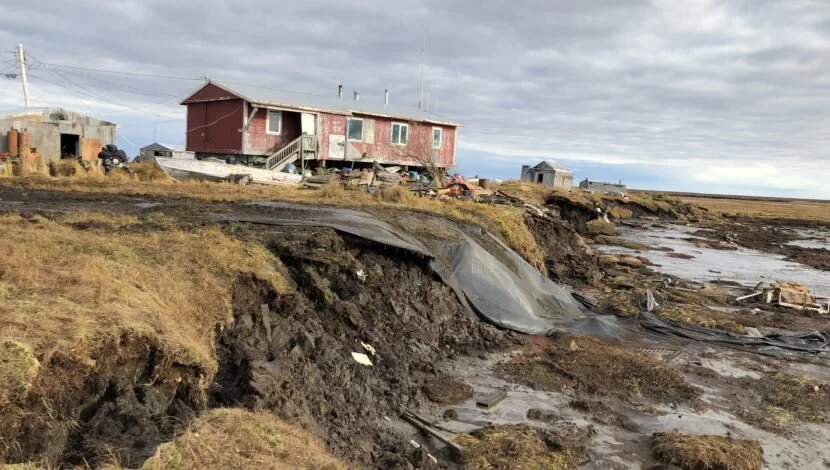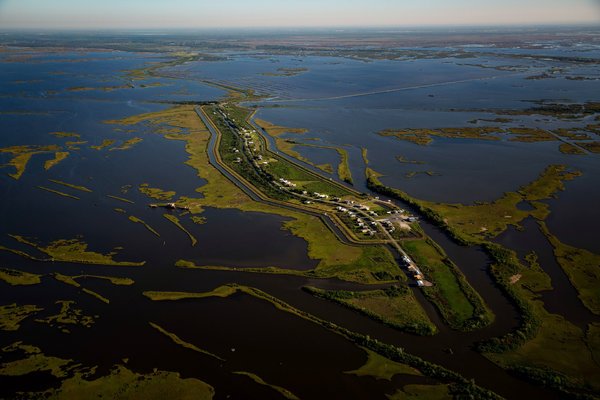rising voices, changing coasts hub
Lowlander Board President Theresa Dardar with an elderberry plant.
The Lowlander Center is a partner in a new 20 million dollar NSF-funded project: Rising Voices, Changing Coasts. The RVCC Hub will bring together Indigenous knowledge-holders with social, ecosystem, and physical Earth system scientists with the goal of co-developing ways to address coastal hazards and create more resilient communities. Critically, the knowledge-sharing among participants in the hub is designed to flow both ways, with university-trained scientists benefiting from the deep understanding held by Indigenous people of the places being studied, and Indigenous people benefiting from the regionally specific information that can be generated by computer modeling and other research techniques to help inform difficult adaptation and mitigation decisions. Ultimately, the hub will interweave Indigenous knowledge, modeling capabilities, archeological records, GIS techniques, socio-economic analysis, and hazards research.
“Current measures and indices of resilience fail to capture the cultural strengths that make Indigenous Peoples resilient in the face of climate catastrophe.”
Addressing Climate-Forced Displacement in the United States: A Just and Equitable Response
In partnership with the Unitarian Universalist Service Committee, the Lowlander Center has developed a policy brief on Climate-Forced Displacement.
Preserving our place: A Relocation and adaptation toolkit
In collaboration with the Isle de Jean Charles Biloxi-Chitimacha-Choctaw Tribe, the Lowlander Center produced a toolkit document for communities who are at high environmental risk and attempting adaptation.
The Isle de Jean Charles (IdJC) tribe had been working to define development goals in relation to their community relocation from their ancestral home due to sea level rise issues on the Island. Working with IdJC community members, our team produced a methodology for working together and site objectives, design, and analysis related to potential relocation and memorialization efforts supported in part by the National Academy of Sciences.
The National Academies of Sciences published a report with findings and recommendations regarding the unique challenges associated with managed retreat among vulnerable coastal communities in the Gulf Coast region. The report focuses on policy and practice considerations, research and data needs, and community engagement strategies.
Louisiana Universities Resilient Architecture Collaborative (LURAC)
Lowlander is currently working to revive the Louisiana Universities Resilient Architecture Collaborative (LURAC), which educates architectural and planning students in sustainable resilient standards to be leaders for climate resilient design. LURAC aims to “weave together” architects with other resilience specialists to develop a clearer knowledge of the challenges to resilient buildings and community form, processes to develop and implement design solutions at the neighborhood and community scale, and implementable best practices disseminated through professional networks in Louisiana and beyond.
Note: Because it was such an in-person program, LURAC has not been able to function since Covid. In addition, the two hurricane seasons which contained Laura and Ida kept Lowlander engaged with direct recovery and thus unable to participate. Recently, Nick Jenisch, Tulane, the coordinator of LURAC and Shirley Laska, project lead for the Lowlander Center, have begun discussions toward how the initiative can benefit from its first two years of existence plus remote engagement approaches utilized during the hurricane recovery. Watch this site for the revised initiative.





